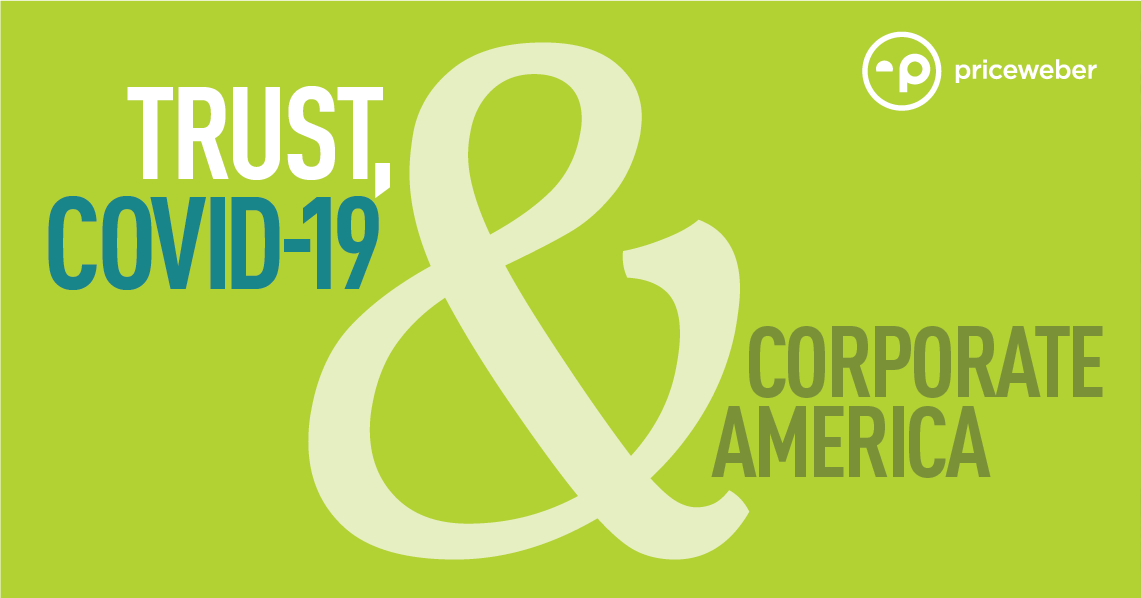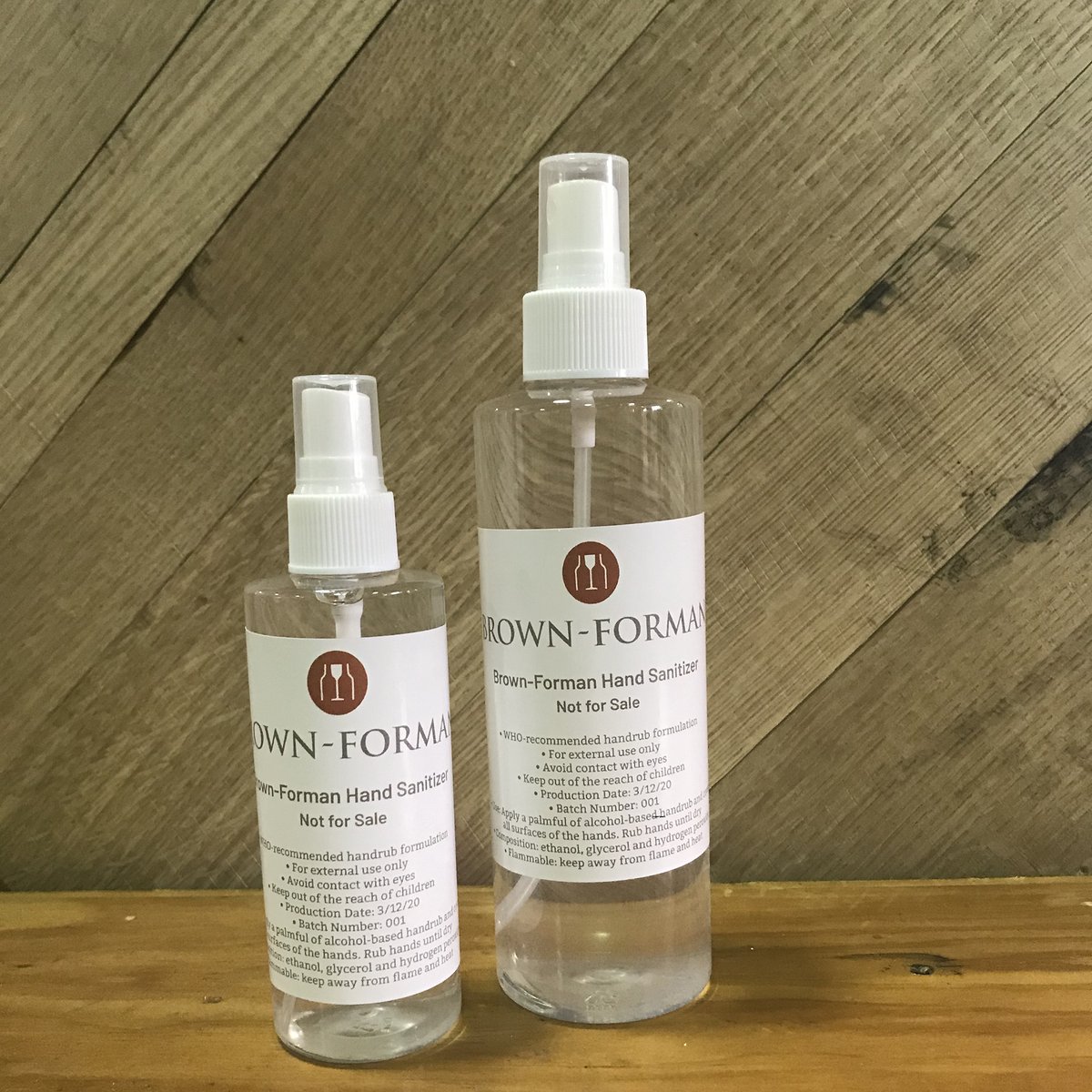In this edition of our plain-talk series, we’ll take a look at brand trust and corporate social responsibility, and discuss how the two are playing out during the current COVID-19 global crisis.
American consumers’ trust in the federal government to solve societal issues is the lowest it has been in more than twenty years, according to a recent Gallup poll. Today, this distrust has led consumers to redirect their gaze from the government to corporations, urging them to step-up their social responsibility game. Ironically enough, as consumers’ expectations of brands to practice social responsibility continues to rise, the same consumers’ trust in said brands is declining, according to the 2019 Edelman Trust Barometer Special Report.
While some may feel this positions companies between a rock and a hard place, others will view it exactly for what it is – an opportunity.
Although the current COVID-19 crisis presents brands with countless opportunities to serve the public, it’s imperative that companies are wise and calculated in their efforts. With 45% of consumers reporting that a brand would never be able to regain their trust after displaying unethical behavior, the last thing you want to do as a company is further damage an already strained relationship.
Building trust with consumers takes consistency, intentionality, authenticity and transparency. All you need is a script ¬– one that is crafted with care, supported by research, and delivered to your audience with transparency and confidence.
So, how are brands continuing to communicate and build trust with consumers from a physical distance? The key word here is “communicate.” They’re doing just that.
1. They’re re-evaluating current and future marketing efforts.
During a global crisis like COVID-19, marketers should operate at a heightened level of caution when continuing or deploying new campaigns. Consumers everywhere are feeling the angst and uncertainty of the immediate future, so introducing a campaign that could insinuate any degree of insensitivity could be the beginning of the end of your brand.
PriceWeber’s long-standing client, The Hershey Company, was among the first to pull a video spot from the public. The commercial depicted Bob Williams and Diggy Moreland handing out Hershey Chocolate Bars to strangers, often coupled with handshakes and hugs. Considering the Centers for Disease Control and Prevention’s recommendation to avoid interpersonal physical contact and practice social distancing, Hershey decided to replace the spot with product-centric content, “due to the current sensitivities surrounding the COVD-19 virus.”
Currently, The Hershey Company ranks as the seventh most trusted brand in America, according to a 2020 Morning Consult report. So, making the decision to pull the spot that could’ve been perceived as insensitive, proved invaluable to maintaining trust with consumers.
2. They’re prioritizing their employees’ well-being over company profits.
In response to recent recommendations from the CDC and government officials, many companies have implemented work-from-home policies. Some companies are taking it a step further and adding additional paid sick days to encourage physical rest. The most innovative, forward-thinking corporations are not only attending to employees’ physical well-being but also to their mental health.
For example, Starbucks just announced that it will be giving all employees full pay for the 30-day March 21-April 19 time period, whether they choose to come to work or stay home. The company has also announced that it has expanded employees’ health benefits to include up to 20 therapy sessions. Companies that truly choose to prioritize their employees with their actions and their words will benefit from a stronger, more trusting relationship with the public as well.
3. They’re investing in solutions.
In addition to practicing social distancing, some companies are getting creative with their CSR efforts, and adjusting normal product production and company processes to serve the greater good. Recently, PriceWeber’s longtime client, Brown-Forman, modified the distillation processes at Woodford Reserve and Old Forester to make hand sanitizer, while also continuing with normal bourbon distillation. Brown-Forman teams then delivered a combined total of 6,000 hand sanitizer bottles to Kentucky medical systems in need. “We consider this a donation to those on the front lines of this pandemic and a small token of our appreciation for all they’re doing to keep our communities safe,” Brown-Forman Director of External Communications, Elizabeth Conway, said.
Larger brands like Amazon are also taking note of the global shortage of some essential household products and medical supplies. The company announced in an official statement that it will temporarily cease shipments of nonessential products to consumers in Italy and France. “We will temporarily stop taking orders on some nonessential products on Amazon.it and Amazon.fr,” Amazon.com said. “This lets fulfillment center associates focus on receiving and shipping the products customers need most at this time.” This decision was made to first and foremost keep Amazon’s employees safe while also answering the public’s increased demand for essential products.
In the U.S., Amazon has announced that it’s currently pausing shipments of nonessential products to its warehouses. This shift in routine operations was made in response to the increase in online orders. Amazon told sellers and vendors that items considered essential include “household staples, medical supplies and other high-demand products.” Although temporal, this is undeniably a bold decision made by the world’s largest online retailer.
When companies bolster their resources and invest generously in solutions, consumers take note and trust deepens.
4. They’re proactively communicating, both internally and externally.
To remain silent when your employees and consumers are anticipating a response, has the potential to sow mistrust and be detrimental to your brand. Right now, people around the world are glued to social media and news outlets, anticipating the latest COVID-19 development. This constant anticipation fuels fear and anxiety, which then manifests itself as impatience.
As an employer, you should do everything in your power to make sure your employees feel heard and prioritized. By proactively communicating updated company policies in response to new recommendations, you squash the opportunity for internal gossip and side conversations.
As a trusted brand, you should make contact with your consumers, if you have the resources, since Gallup research shows that 79% of U.S. consumers are looking to brands like yours to solve global issues.
So, whether your audience is internal or external, it’s imperative that as a company, you respond in a timely manner to ease anxiety and build trust.
What’s next?
Experts around the world and across all industries are uniting to bring together the most innovative public health solutions to help flatten the curve. Although this global crisis won’t last forever, the behavior of your company will make a lasting impression. Currently, Americans’ mistrust in each other, the media and our federal government is at an all-time high, according to a recent Gallup report. During this critical period, you may find that you need objective professional input to help navigate the uncertainty. If you find yourself in need, our team of communication strategists is available for remote consulting. For more information or to schedule a consultation meeting, give us a call at 502-499-4209 or contact us online today.



